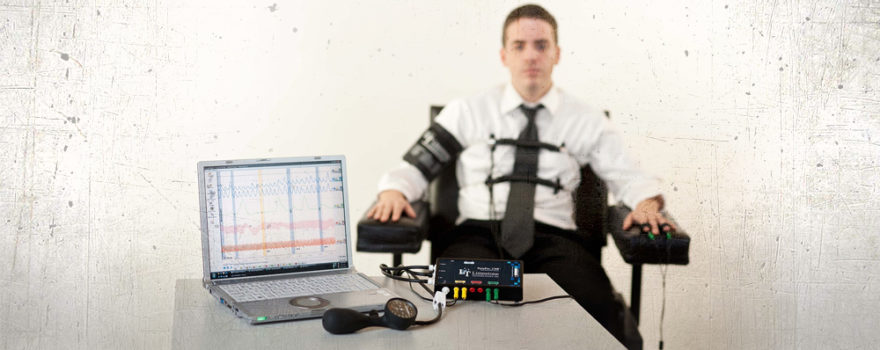
There are many doubts regarding the use of polygraph tests. That is the reason why we wrote this article, which includes answers to some frequently asked questions.
When is it appropriate to use polygraph tests?
In all cases where it is necessary to determine the veracity of a statement regardless of the nature of the case in a scientific and reliable way. Through the use of the polygraph, complex situations can be solved in an objective, faster, and cost-effective manner.
In all the selection processes of candidates for positions where maximum reliability as well as a high level of integrity are required, especially those concerning:
- Private security companies: bodyguards, drivers, transportation of cash, use of firearms.
- Cargo handling: logistics, urgent transportation, etc.
- Management of money and securities: cashiers, jewerly clerks.
- Handling of substances: laboratories, pharmacies, transportation of dangerous substances, heavy transportation.
- Handling of confidential and/or strategic information, projects, designs, personnal assistants.
- Strategic industry, nuclear and water plants, power stations, etc.
- Temporary employment agencies where the time factor and the market needs require a fast and reliable selection, and wrong decisions can compromise the image of the company and the rest of its personnel.
- Local police: selection of candidates.
- Detection of unhealthy habits: gambling, drugs, alcohol.
- Casinos and gambling industry: periodic selection and management of employees.
- Industrial espionage: risk prevention, detection of harmful elements for the company.
- Domestic workers: reference and background checks of hard-to-find segments: immigrants, non-Community foreigners, etc.
During investigations carried out by private detectives, who need an effective tool in order to verify the truthfulness of a statement, especially when there is no reliable evidence that help to resolve the following cases: internal theft, fraud, suspicious behavior, etc.
- Maintaining trust: partners, associates, employees, etc.
- Lawyers: verification and certification of statements.
- Expert assistance in legal proceedings: forensic psicophysiology, a flourishing multidisciplinary approach because of the new Jury Act.
Are polygraph results always conclusive?
Usually, yes, most cases are classified as NDI (no deception indicated) or DI (deception indicated). However, in certain cases the final results of the test may be classified as NC (not conclusive). This inusual situation occurs when the person being tested is in no condition to perform the test. Before disregarding this possibility, the examiner shall carry out a simple evaluation before the test in order to verify the suitability of the subject.
Is there any guarantee of privacy?
Yes. It is regulated that polygraph tests have to be always carried out in a private environment, without the interference of third parties, except in cases where an interpreter is required.
When the subject gives informed consent to be tested, he or she indicated who can know the results. This directive is parte of the ethical code of the American Polygraph Association, the Asociación Latinoamericana de Poligrafistas (Latin-America Polygraph Professionals Association), and all their international affiliates.
Are the questions known before taking the test?
Yes. Each question that is going to be answered during the test should be previously read and explained. Under no circumstances shall be administered surprise questions as a trap.
During a polygraph test, can all types of questions be administered?
As a general rule (*) questions referring to the following subjects shall not be administered:
- Religious beliefs.
- Sexual activities or orientation.
- Opinions on racial issues.
- Political activities or affinities.
- Labor union activities or affinities (*) except during specific polygraph evaluations, where the questions shall always be related to the nature of the case, for example: infidelity.
Are made the results known after the test?
Yes, in the case of a selection test, or in an investigation that affects more than one person the results are going to be presented in the final report to the test sponsor.
How long does a polygraph evaluation last?
There is necessary a period of 90/120 minutes to administer a polygraph test correctly when it is the case of an investigation. In the case of personnel selection, there is a method that could last 180 minutos. The test includes a previous phase where general information about the health of the subject is requested, and then the functioning of the polygraph is explained.
The test starts with a detailed revision of the case in order to define the questions that shall constitute the test: once the questionnaire is accepted, the evaluation with the polygraph is carried out. There are necessary two or three graphics to obtain more accurate results.
Who should not take a polygraph test?
Anyone who does not provide a written consent. Minors who do not have authorization from their parents or legal tutors. People who are classified as “not assessable”.
Write a comment
